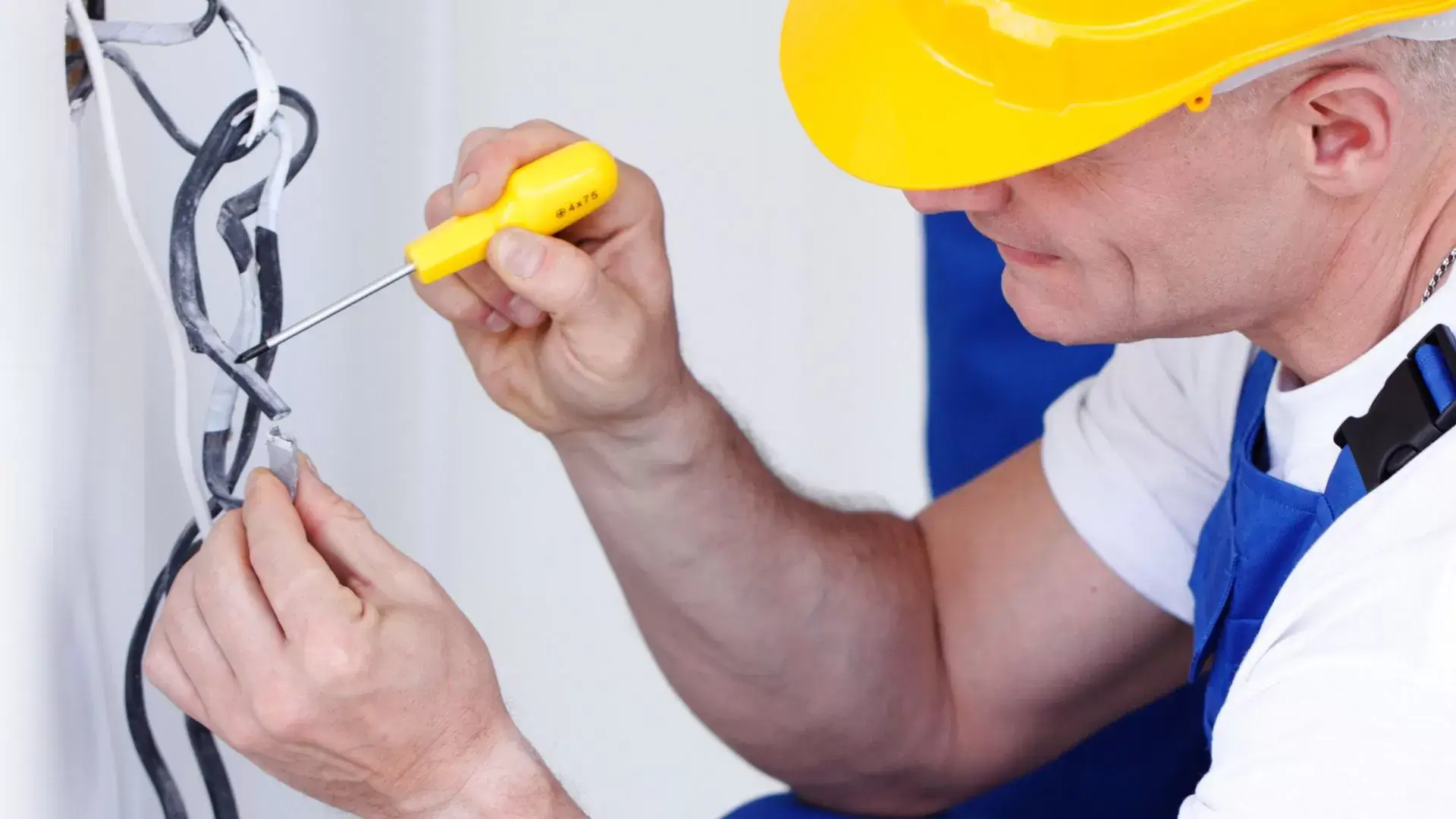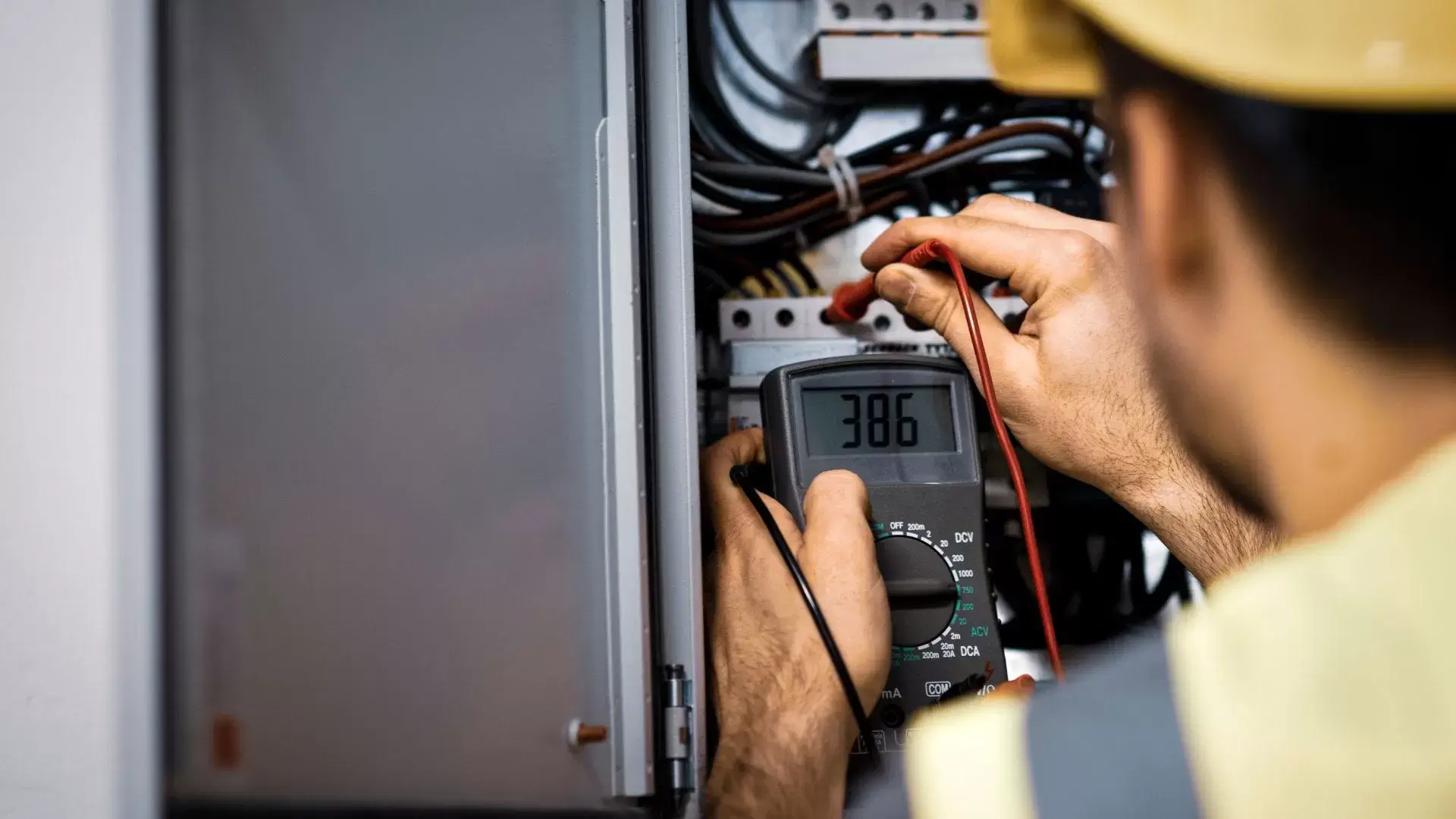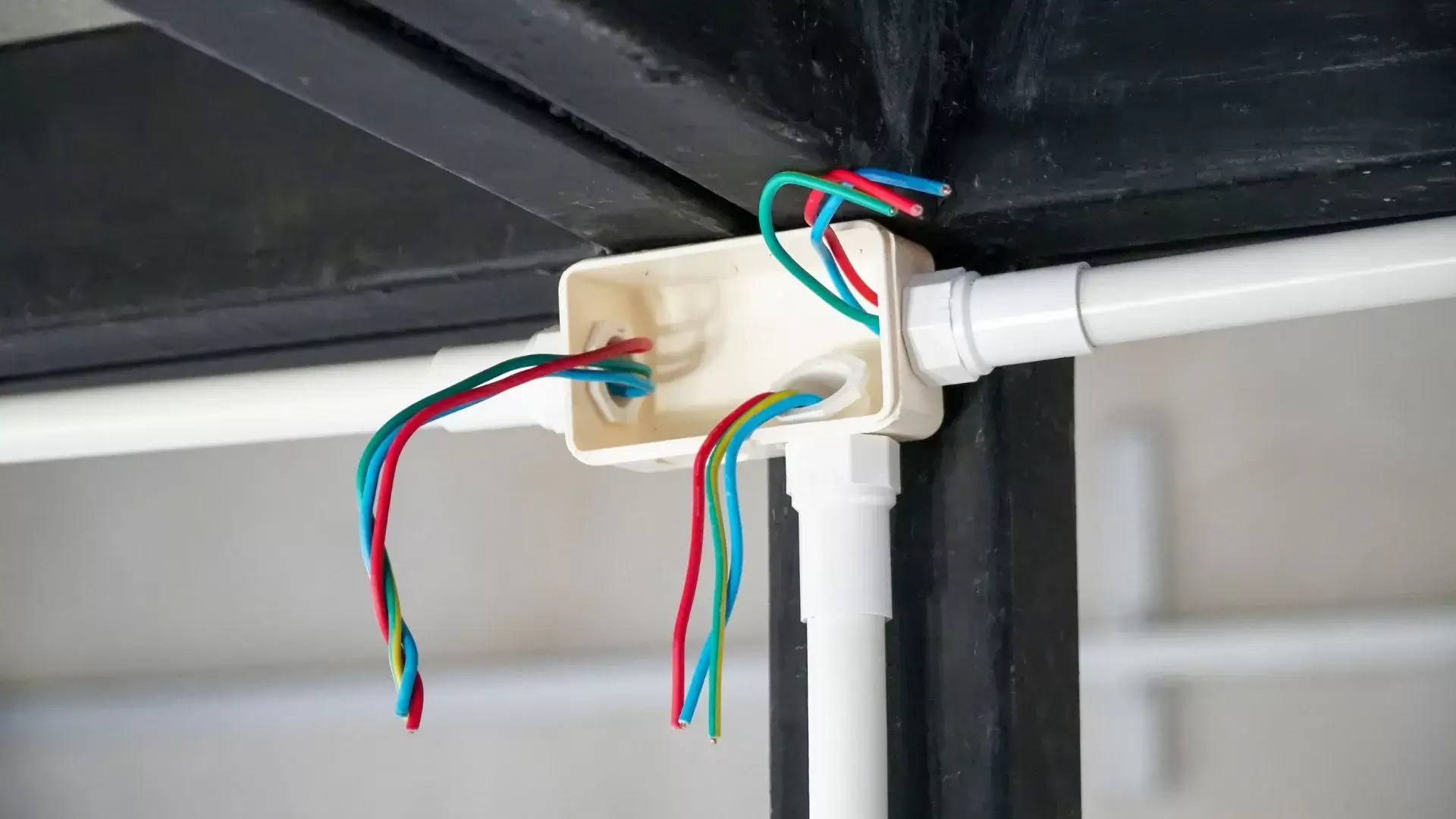Different Home Wiring Types Explained in Mississauga
When examining home wiring types in Mississauga, it’s crucial to grasp the variance between copper, aluminum, and knob-and-tube wiring for safety and compliance. Copper wiring boasts high conductivity and longevity, while aluminum poses fire risks. Knob-and-tube wiring’s lack of grounding elevates hazards. Understanding electrical wire color codes aids in identification and safety measures. Various types like Non-Metallic Cable (NM) and Armored Cable (AC) serve distinct purposes. Each wiring type demands precise handling to guarantee safety and adherence to regulations. Explore further to enhance your knowledge on different home wiring options in Mississauga for a secure electrical setup.
Key Takeaways
- Copper wiring offers superior conductivity and durability in Mississauga homes.
- Aluminum wiring, common in commercial settings, poses fire risks and insurance challenges.
- Knob-and-tube wiring lacks grounding, increasing safety hazards.
- Non-metallic cable (NM) is commonly used in residential settings for its insulated conductors.
- Armored cable (AC) with metal sheath is ideal for industrial and outdoor environments in Mississauga.
Electrical Wiring and Structured Cabling expert at iCAN Electricians in Mississauga
When it comes to electrical wiring and structured cabling services, our team at iCAN Electricians in Mississauga excels in installation, replacement, and repair.
We specialize in addressing various wiring needs, including the complexity of aluminum wiring found in many townhouses.
With a focus on safety, compliance, and quality workmanship, we offer solutions for upgrading electrical systems to guarantee longevity and reliability. Contact us for your electrical wiring and cabling needs.
Electrical Wiring and Cabling Installation and Replacement Services
Specializing in electrical wiring and structured cabling installation and replacement services, iCAN Electricians in Mississauga offer expertise in handling various types of wiring, including aluminum, copper, and specialized applications.
Our electricians are well-versed in the safety standards and National Electrical Code requirements for efficient home wiring projects. Whether it’s upgrading existing aluminum wiring to copper for improved safety or installing structured cabling for enhanced connectivity, our team guarantees compliance with all regulations.
We prioritize the safety and functionality of your home wiring, providing cost-effective solutions tailored to your needs. Trust iCAN Electricians for professional and reliable services in Mississauga, ensuring efficient installation, replacement, and maintenance of different wiring types.

Electrical Wiring and Cabling Repair Services
In addressing electrical wiring and cabling repair services, iCAN Electricians in Mississauga excel in providing expert solutions for maintaining and fixing various types of wiring in residential settings. Our team of electricians specializes in handling repairs related to aluminum and copper wiring, ensuring the safety of your home.
We’re experienced in diagnosing and resolving safety hazards, enhancing overall home safety and efficiency. Whether it’s addressing issues with structured cabling or traditional electrical wiring, iCAN Electricians prioritize the proper functioning of your electrical systems.
Trust us to deliver professional repair services that meet compliance standards and guarantee the well-being of your household.

Home Wiring Types Overview
Understanding the diverse types of wiring used in homes is essential for guaranteeing safety and efficiency in electrical systems. Copper wiring, the standard in modern electrical systems, provides superior conductivity and durability, featuring ground wires on outlets for enhanced safety.
In contrast, aluminum wiring, prevalent in the 1960s-1970s, is susceptible to overheating and oxidation, posing a fire hazard and insurance challenges. Knob-and-tube wiring, commonly found in homes built before the 1950s, lacks a ground wire, increasing the risks of fire and electric shock.
Electrical wire color coding plays a pivotal role in identifying different wires and their functions, aiding in maintenance and safety. Non-metallic cable and armored cable serve specific purposes in home wiring systems, each with unique benefits and applications.
It’s important to be aware of these variations to mitigate potential fire hazards and ensure the smooth operation of the electrical infrastructure.
Non-Metallic Cable (NM) Explained
Non-Metallic Cable (NM), a prevalent form of electrical wiring in residential settings, encapsulates insulated conductors and a grounding wire within a protective plastic sheath. Also known as Romex cable, NM cable is commonly used due to its ease of installation.
The cable consists of two or more insulated conductors along with a bare ground wire, all enclosed in a durable plastic sheath. To aid in identification, NM cable follows a color-coded system with white indicating neutral, black for hot wires, and bare copper for the ground wire.
It’s important to adhere to safety guidelines and regulations when working with NM cable to mitigate potential electrical hazards. Proper handling and installation of NM cable not only promote safety but also contribute to the efficient functioning of the electrical system in a home.
Armored Cable (AC) Details
Integrating a metal sheath for robust protection, Armored Cable (AC) is a resilient electrical wiring option commonly utilized in industrial and outdoor environments. The metal sheath in Armored Cable provides enhanced durability and resistance to damage compared to non-metallic cables.
AC wiring is well-suited for areas requiring mechanical protection, such as industrial settings and outdoor applications. Its ability to withstand harsh conditions makes it ideal for locations prone to physical damage or exposure to elements. Armored Cable is a reliable choice for installations needing extra protection against moisture, corrosion, and impact.
The metal sheath not only enhances the cable’s durability but also guarantees its longevity in challenging environments. When considering wiring options for areas demanding resilience and mechanical strength, Armored Cable stands out as a dependable solution offering durability and robustness for various applications in industrial and outdoor settings.
Conduit Wiring in Homes
Conduit wiring in homes involves the installation of electrical wires through metal or plastic tubing to provide protection against various external factors. This method is commonly utilized in commercial buildings and industrial settings to enhance safety measures.
By encasing the electrical wires within the conduit, it offers physical shielding against damage, moisture, and corrosive elements, ensuring the longevity and reliability of the electrical system. One significant advantage of conduit wiring is its facilitation of easy replacements or upgrades of wires when needed.
Additionally, the use of conduit wiring minimizes the risk of accidental contact with live wires, thereby reducing the potential for electrical hazards within the premises. Overall, conduit wiring stands out as a practical solution for safeguarding electrical systems in residential, commercial, and industrial environments, offering enhanced protection and peace of mind to occupants and workers alike.

Specialized Wiring Applications
Specialized wiring applications offer tailored solutions for diverse electrical needs, ensuring efficient and safe operation within specific circuits and communication systems.
Underground Feeder Cable is engineered for outdoor conditions, safeguarding against moisture and soil exposure.
Metal-Clad Cable provides essential protection through aluminum interlocking armor, making it suitable for industrial applications.
Low-Voltage Wiring is designed for specific circuits such as lighting and doorbell systems, operating at lower voltages for enhanced safety.
Phone and Data Wire cater to communication needs, guaranteeing reliable connections for telecommunication and networking requirements.
Electrical Wiring Channels play an important role in organizing and protecting wires within walls or ceilings, promoting safety and simplifying maintenance tasks.
Each of these specialized wiring applications serves distinct purposes in ensuring the smooth functioning of electrical systems, whether in industrial settings or residential environments.
Contact our Expert Electrician in Mississauga, Ontario for any Electrical Wiring and Cabling Needs
When seeking professional assistance for your electrical wiring and cabling needs in Mississauga, Ontario, our expert electrician is ready to provide thorough services tailored to your requirements.
With many homes in Mississauga, especially those from the 1970s-80s, having aluminum wiring, it’s important to prioritize safety measures and electrical inspections to mitigate potential risks. The use of specialized outlets and anti-oxidant creams is recommended to enhance the safety of aluminum wiring installations in Mississauga homes.
Additionally, commercial developments in the area often still utilize aluminum wiring, necessitating proper maintenance and adherence to safety protocols. Given the potential brittleness and associated hazards of aluminum wiring, it’s vital to engage in routine electrical inspections to ensure compliance with safety standards.
Our licensed electrician in Mississauga is well-versed in handling various electrical wiring types, including aluminum wiring, and can offer expert guidance and services to address your specific needs effectively.

Frequently Asked Questions
What Type of Wiring Is Used in Residential Homes?
In residential homes, copper wiring is commonly used due to its conductivity and safety features. It provides better durability and is equipped with a ground wire for enhanced protection. Upgrading from older aluminum wiring may be necessary in some cases.
What Type of Wiring Do I Have in My House?
We have to identify the type of wiring in our house for safety. Understanding our wiring helps prevent hazards. It’s essential for electrical safety. We must inspect and know our home’s wiring to guarantee protection from potential risks.
What Are the Different Types of Electrical Wiring?
Understanding the different types of electrical wiring is important for safety and compliance. We differentiate between non-metallic cable (NM), armored cable (AC), and conduit wiring for various applications. It’s vital to know and adhere to wiring standards.
What's the Difference Between 12 2 and 12 3 Wire?
When comparing 12-2 and 12-3 wire, the key distinction lies in the presence of an extra conductor in 12-3 for complex electrical setups like three-way switches. Understanding these differences guarantees precise electrical project planning and execution.

